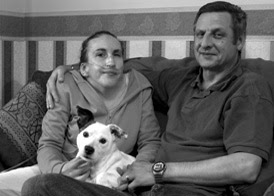
A Bangladeshi friend, consoling me over India’s knock out from the World Cup, said to me, “Hey, don’t be mad. The Pakis are gone as well.” His comment made me wonder if the elimination of Pakistan (our arch rival, as most Indians would say!) from the tournament was really going to do the magic for me and make me think any less about the disasters of our team? More than that, has the dirty politics preyed upon our minds?
Almost 60 years after the independence, relations between India and Pakistan still remain hostile. The issues regarding the most debated region, Kashmir, still remain unresolved. The Pakistanis argue that Kashmir should have become part of Pakistan at the time of partition due to its Muslim-oriented population. India claims Kashmir to be their part because of the Instrument of Accession signed by Maharaja Hari Singh in October 1947. The dispute on the territory has caused two of the three India-Pakistan wars: the first in 1947, the second in 1965.
Due to this historical anonymity, governments of both nations have continuously blamed each other for any terrorist attacks in their respective countries, making the other one look like the culprit. Many patriotic Bollywood, commenly referred to as "Hindi cinema," often shows Pakistan playing “the villain,” promoting terrorism in our country and killing our people.
Absorbing everything we are fed with bodes well for the politicians, who have built their careers on the rhetoric surrounding the Kashmir issue and nationalism. We allow them to play with our unquestionable nationalistic sentiment and before we know it, it is reflected even in cricket. Of course, it is a different story when there is a battle between India and Pakistan on the cricket pitch, but we can not even bear the thought of our neighbor-country winning against another far-stretched country simply because we are out.
I hope that our cricket team isn’t going to use my friend’s rationale in making themselves feel good, but rather going to take their ouster from the World Cup as an opportunity to reflect on their weaknesses and do something about their performances in the future.
I also hope that we question these politicians, who are good at blaming others for all their policy failures, and not doing much to resolve the issue itself. All we need is peace and not a political agenda that provokes our nationalistic sentiment.




